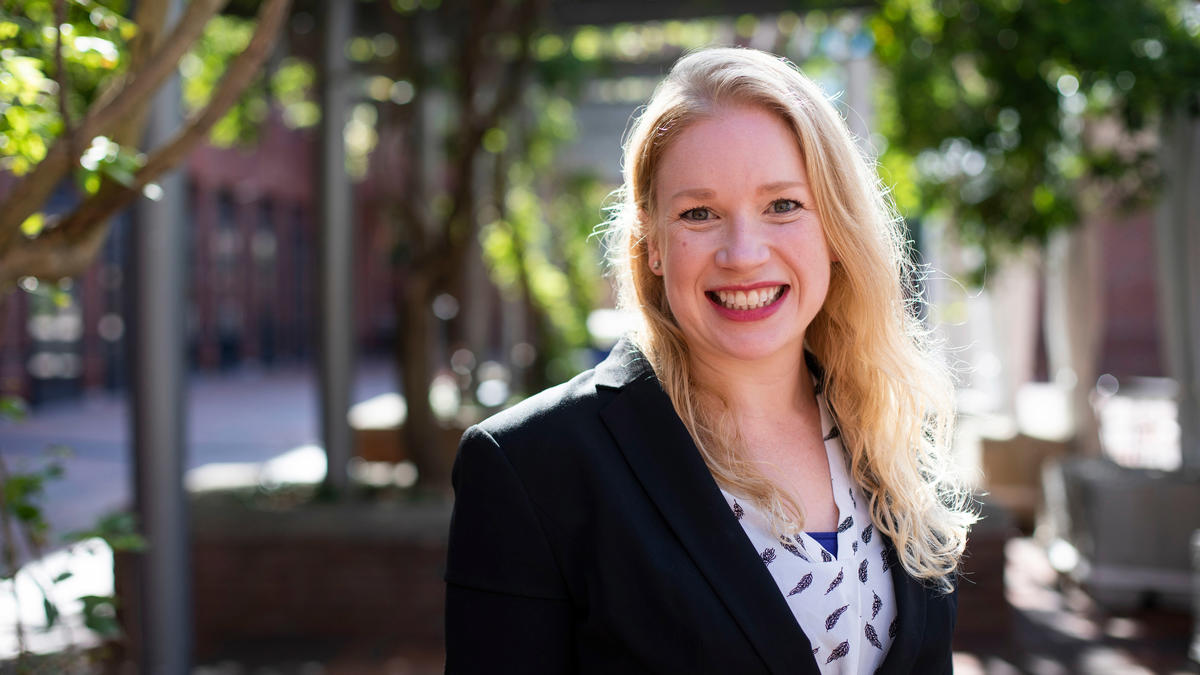A group of University of Kentucky researchers have received a new National Science Foundation (NSF) grant to help them continue a critical mission.
Sarah Wilson, an assistant professor in the Department of Chemical and Materials Engineering in the College of Engineering, and Joseph Hammer, associate professor and director of training in the Department of Educational, School, and Counseling Psychology in the College of Education, have been awarded nearly $350,000 to build upon a previous research project aimed at improving mental health solutions for engineering students.
Anxiety, depression and other mental health concerns are more common in college students than some may realize. For an increasing number of first-year students, culture shock can have serious consequences. In fact, a study by the American Psychological Association found that one in three teens faces a mental health disorder during their freshman year.
"This NSF grant will allow us to further our mission of helping engineering students thrive,” Rudy Buchheit, the Rebecca Burchett Liebert Dean of UK Engineering, said. “This issue is critical, especially for our first-year students who are sometimes overwhelmed. It’s imperative that we provide the necessary support and resources to help them succeed."
While engineering students aren’t necessarily more likely to have a mental health concern, they are significantly less likely to seek help than non-engineering college students.
This treatment gap became the basis for their National Science Foundation (NSF) grant proposal titled, “Development of a Survey Instrument to Identify Mental Health Related Help-Seeking Beliefs in Engineering Students” in September 2020. “As I developed as an instructor and attended conferences that focused on research in engineering education, I started to develop my own research goals," Wilson said. "It’s been exciting to see my vision for research in engineering education gain traction and support.”
The researchers used the $199,000 NSF award to answer a critical question — why aren’t engineering students seeking help for mental health concerns? The project was detailed in a previous UKNow article.
The goal was to create a tool that would allow researchers to measure beliefs among engineering students as they relate to mental health and help-seeking. The results will allow for the development of interventions targeted at changing those specific beliefs and ultimately improving student well-being.
The most recent grant will build upon the prior NSF study’s results. The instrument will be improved to ensure the representativeness of help-seeking beliefs held by students from diverse backgrounds. Additionally, the researchers will gather more data from six institutions outside of UK to create help-seeking profiles.
"There are many factors that may prevent individuals from seeking help. They range from psychosocial factors, such as stigma or fears to material reasons such as insurance or transportation issues,” Hammer said. “As researchers, when we identify these factors, it helps explain help-seeking behavior and provides hard data to guide policy change and the creation of evidence-effective intervention programs. Ultimately, this helps increase access to behavioral healthcare to reduce what is known as the 'treatment gap.'"
Once improved, the instrument will be used to inform more specific interventions — ultimately improving mental health outcomes for diverse engineering students, including those with mental health disabilities.
“By leveraging the expertise of researchers across disciplines — such as engineering and counseling psychology, UK’s ability to make an impact through research is bolstered," UK Education Acting Dean Danelle Stevens Watkins said. "This project will help students at our institution and beyond access treatment they may need."
If you or someone you know is at risk, you can call the National Suicide Prevention Lifeline at 1-800-273-8255. You can also text 741-741.
